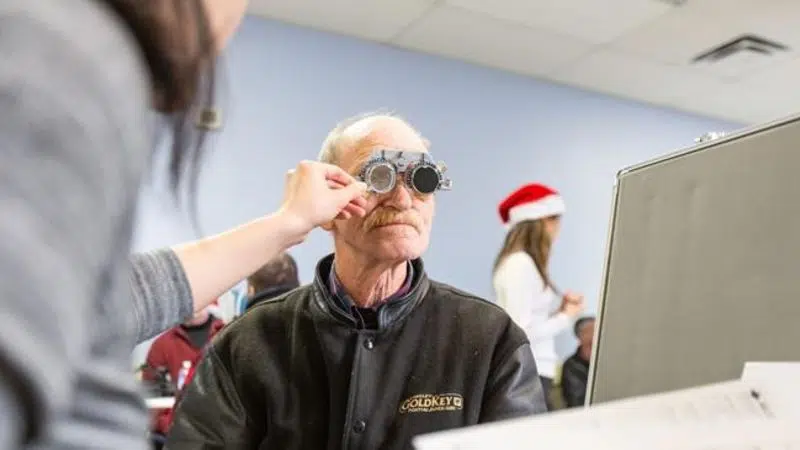
The Eyeglasses Project offers free eye care in Vancouver’s Downtown Eastside
VANCOUVER — It’s been nine years since Tony Pruden had his eyes checked. For nearly a decade, the 54-year-old has been wearing a pair of glasses with progressive trifocal lenses that he won in a contest.
His prescription has changed since then, he said, but he hasn’t been able to afford a new pair.
“I don’t see well at all, even with them on. But I’m way worse if I didn’t have them,” Pruden said as he waited in line at an eye clinic at the Salvation Army in Vancouver’s Downtown Eastside on Sunday.
In about two weeks, Pruden will come back to pick up new frames and lenses tailored to his needs thanks to The Eyeglasses Project, a volunteer-run organization founded early last year.


